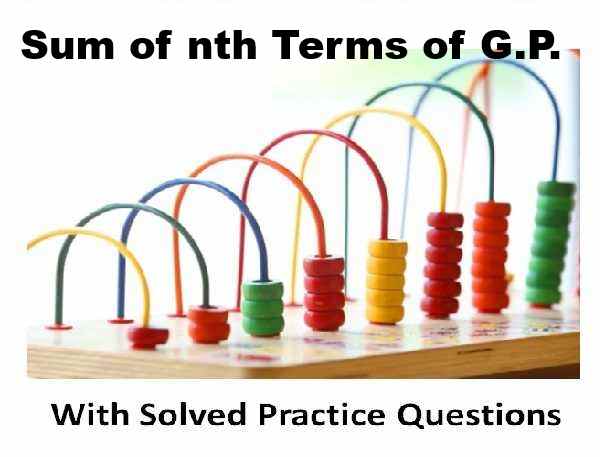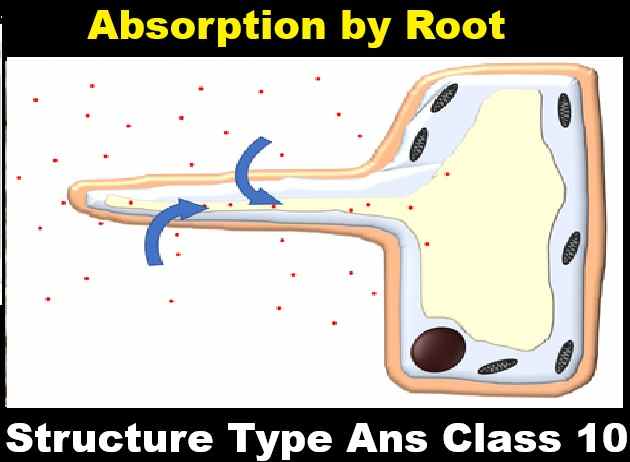Geometric Progression Class 10 OP Malhotra Exe-9D ICSE Maths Solutions of Ch-9 questions as latest prescribe guideline for upcoming exam. In this article you would learn about sum of n terms of an GP. Visit official Website CISCE for detail information about ICSE Board Class-10 Mathematics.

| Board | ICSE |
| Publications | S Chand |
| Subject | Maths |
| Class | 10th |
| Chapter-9 | Arithmetic and Geometric Progression |
| Writer | OP Malhotra |
| Exe-9D | Sum of nth Terms of an GP |
| Edition | 2024-2025 |
Sum of nth Terms of an GP
The sum of GP (of n terms) is: Sn = a(rn – 1) / (r – 1) or Sn = a(1 – rn) / (1 – r), if r ≠ 1. Here, a = First term, r = Common ratio, n = Number of terms
If the common ratio is equal to 1, then the sum of the first n term of the GP is given by: Sn = na
Exercise- 9D
(Geometric Progression Class 10 OP Malhotra Exe-9D ICSE Maths Solutions of Ch-9)
Que-1: Find the sum of the terms of the indicated geometric sequence.
(i) 3, -6, 12,… to 6 terms
(ii) -2, -6, -18,… to 7 terms
(iii) 1/9, 1/3, 1, … to 5 terms
(iv) 2, 1, 1/2, … to 6 terms
(v) 1, 2/3, 4/9, … to 10 terms
(vi) 0.15, 0.015, 0.0015, … 20 terms
Sol: (i) 3, – 6, 12, … to 6 terms
Here, a = 3, r = −6/3 = – 2, n = 6
S6 = {a(1−r^n)}/(1−r) (∵ r < 1)
= [3{1−(−2)^6}]/{1−(−2)} = {3(1−64)}/(1+2)
= {3(−63)}/3 = – 63.
(ii) -2, -6, -18,… to 7 terms
Here, a = – 2, r = −6/−2 = 3, n = 7
∴ S7 = {a(r^n−1)}/(r−1) (∵ r > 1)
= {−2(3^7−1)}/(3−1)
= {−2(2187−1)}/2
= – (2186) = – 2186.
(iii) 1/9, 1/3, 1, … to 5 terms
Here, a = 1/9 r = (1/3) ÷ (1/9) = (1/3) x (9/1) = 3,
S5 = {a(r^n−1)}/(r−1) = {(1/9)(3^5−1)}/(3−1)
= {(1/9×2)(243−1) = (1/18)×242
= 121/9 = 13*(4/9)
(iv) 2, 1, 1/2, … to 6 terms
Here, a = 2, r = 1 ÷ 2 = 1/2, n = 6
S6 = {a(1−r^n)}/(1−r) (∵ r < 1)
= [2{1-(1/2)^6}]/(1-(1/2))
= [1-(1/64)]/(1/2)
= (2×2){(64-1)/64}
= 4(63/64)
= 63/16 = 3*(15/16).
(v) 1, 2/3, 4/9, … to 10 terms
a = 1, r = 2/3 ÷ 1 = 2/3, n = 10
S10 = {a(1−r^n)}/(1−r) (∵ r < 1)
= [1{1-(2/3)^10}]/{1-(2/3)}
= {1-(2/3)^10}/(1/3)
= [3{1-(2/3)^10}].
(vi) 0.15, 0.015, 0.0015, … 20 terms
Here, a = 0.15, r = 0.015/0.15 = 1/10 = 0.1, n = 20
∴ S20 = {a(1−r^n)}/(1−r)
= {0.15[1−(0.1)^20]}/(1−0.1)
= (0.15/0.9)[1+(0.1)^20]
= 15/90[1+(0.1)^20]
= 1/6[1 + (0.1)^20]
Que-2: Find the sum of the following series
(i) 12 + 6 + 3 + 1.5 + … to 10 terms
(ii) 6 – 3 + 1*(1/2) – 3/4 + … to 15 terms
(iii) 2 + 6 + 18 + 54 + … to 12 terms
(iv) 6 + 12 + 24 + … + 1536
Sol: (i) 12 + 6 + 3 + 1.5 + … to 10 terms
Here, a = 12, r = 6/12 = 1/2, n = 10
Sn = {a(1−r^n)}/(1−r) (∵ r < 1)
S10 = {12(1-(1/2)^10)}/(1-(1/2))
= {12(1-(1/2)^10)}/(2-1)/2
= {12(1-(1/2)^10)}/(1/2)
= {24(1-(1/2)^10)}.
(ii) 6 – 3 + 1*(1/2) – 3/4+… to 15 terms
Here, a = 6, r = −3/6 = −1/2, n = 15
Sn = {a(1−r^n)}/(1−r) (∵ r < 1)
S15 = {6(1-(-1/2)^15)}/(1-(-1/2))
= {6(1-(-1/2)^15)}/(2+1)/2
= {6(1-(-1/2)^15)}/(3/2)
= {4(1+(1/2)^15)}.
(iii) 2 + 6 + 18 + 54 + … to 12 terms 6
Here, a = 2, r = 6/2 = 3, n = 12
Sn = {a(r^n)−1}(r−1) (∵ r > 1)
S12 = {2(3^12)−1}/(3−1)
= {2(3^12)−1}/2
= (3^12) – 1.
(iv) 6 + 12 + 24 + … + 1536
Here, a = 6, r = 12/6 = 2, l = 1536
Tn = l = {a(r^(n–1)}
1536 = {6(2^(n-1)}
1536/6 = 2^(n -1)
256 = 2^(n-1)
2^8 = 2^(n-1)
n-1 = 8
n = 9
Now, Sn = {a(r^n)-1}/(r-1)
= {6(512-1)}/(9-1)
= {6(511)}/8
= 3066.
Que-3: Find the sum to n terms of the following series.
(i) 12 + 6 + 3 + 1*(1/2) + …
(ii) 20 – 10 + 5 – 2*(1/2) + …
(iii) 9 – 3, +1 – 1/3 + …
(iv) √3 + 3 + 3√3 + 9 + …
(v) 0.9 + 0.09 + 0.009 + 0.0009 + ….
Sol: (i) 12 + 6 + 3 + 1*(1/2) +
a = 12, r = 6/12 = 1/2
Sn = {a(1−r^n)}/(1−r) (∵ r < 1)
= {12(1-(1/2)^n)}/(1-(1/2))
= {12(1-(1/2)^n)}/{(2-1)/2}
= {12(1-(1/2)^n)}/(1/2)
= [24{1-(1/2)^n}].
(ii) 20 – 10 + 5 – 2*(1/2) + … n terms
Here, a = 20, r = −10/20 = −1/2
Sn = {a(1−r^n)}/(1−r) (∵ r < 1)
= [20{1-(-1/2)^n}]/(1-(-1/2))
= [20{1+(1/2)^n}]/{(2+1)/2}
= [(40/3){1+(1/2)^n}].
(iii) 9 – 3, + 1 – 1/3+… n terms
a = 9, r = -3/9 = -1/3
Sn = {a(1−r^n)}/(1−r) (∵ r < 1)
= [9{1-(-1/3)^n}]/(1-(-1/3))
= [9+{1+(1/3)^n}]/{(3+1)/3}
= [(27/4)+{1+(1/3)^n}]
(iv) √3 + 3 + 3√3 + 9 + … n terms
Here, a = √3, r = 3/√3 = √3
Sn = {a(r^n)−1}/(r−1) (∵ r > 1)
= [√3{(√3)^n}-1]/(√3-1)
= [√3/{√3-1}] [{(√3)^n}-1]
= [{√3(√3+1)}/{(√3-1)(√3+1)}] [{(√3)^n}-1]
= [{3+√3}/{3-1}] [{(√3)^n}-1]
= [{3+√3}/2] [{(√3)^n}-1].
(v) 0.9 + 0.09 + 0.009 + 0.0009 + ….
Here, a = 0.9, r = 0.09/0.9 = 1/10 = 0.1
Sn = {a(1−r^n)}/(1−r)
= 0.9[1−(0.1)^n]/(1−0.1)
= 0.9/0.9[1- (0.1)^n]
= 1 – (0.1)^n
Que-4: Use the formula Sn = a(r^(n−1))/(r−1) to find:
(i) a1 and Sn if an = 1000, r = 10 and n = 7
(ii) n and S if an = 5, a1 = 320, r = 2
(iii) a9 and a1 if n = 9, r = 2, sn = 1022
Sol: (i) an = 1000, r = 10 and n = 7, a1 and Sn
an = arn-1 ⇒ a x 107-1 = 1000
a × 10^6 = 1000
a = 10^3/10^6
a = 1/1000 = 0.001
Sn = {a(r^n)−1}/(r−1) (∵ r > 1)
= [0.001{(10^7)-1}]/(10-1)
= {1/(1000×9)} [10000000-1]
= {1/9000} (999999)
= 111111/1000 = 111.111
(ii) a1 = 5, an = 320, r = 2, n and Sn
an = ar^(n-1) ⇒ 320 = 5 × 2^(2n-1)
2^(n-1) = 320/5 = 64 = 2^6
∴ n – 1 = 6 ⇒ n = 6 + 1 = 7
and Sn = {a((r^n)−1)}/(r−1)
= {5((2^7)−1)}/(2−1)
= {5(128−1)}/1 = 5 × 127 = 635.
(iii) n = 9, r = 2, Sn = 1022, a9 and a1
Sn = {a((r^n)−1)}/(r−1)
1022 = {a((2^9)-1)}/(2-1)
1022 = {a(512-1)}/1
1022 = a × 511
a = 1022/511
a = 2
a9 = ar^(n-1)
= 2(2)^(9-1)
= 2(2)^8
= 2 × 256 = 512.
Que-5: If {an} is a G.S. (i.e., geometric sequence) and a1 = 4, r = 5, find a6 and S6.
Sol: {an} is in G.S.
a1 = 4, r = 5, find a6 and S6,
S6 = ar^(n-1) = 4 x (5)^(6-1) = 4 x 5^5
= 4 x 5 x 5 x 5 x 5 x 5 = 12500
S6 = 1/2
= 5^(6 – 1) = 15625 – 1 = 15624
Que-6: How many terms of the G.P. 3, 3/2, 3/4, …are needed to give the sum.
Sol: Here ,a = 3 and
Common ratio ,r = 1/2
And, And, Sn = 3069/512
∴ Sn = 3[{1−(1/2)^n}{1−(1/2)}]
⇒ 3069/512 = 3[{1−(1/2^n)}/{1−(1/2)}]
⇒ 3069/512 = 6{1 − (1/2^n)}
⇒ 3069/3072 = 1 − (1/2^n)
⇒ 1/2^n = 1 − (3069/3072)
⇒ 1/2^n = 3/3072
⇒ 2^n = 3072/3
⇒ 2^n = 1024
⇒ 2^n = 2^10
∴n = 10.
Que-7: The sum of some terms of a G.P. is 315 whose first term and the common ratio are 5 and 2 respectively. Find the last term and the number of terms.
Sol: Sum of some terms = 315
Ratio in first term (a1) and common ratio (r) = 5:2
Let number of terms be n
and first term (a1) be 5 and r = 2
Now, Sn = {a(r^(n−1))}/(r−1)
315 = {5.2(n-1)}/(2-1)
63 = 2^(n – 1) ⇒ 2n = 63 + 1 = 64 = 2^6
∴ n = 6
and T6 or a6 = a^(n -1) = 5(2)^6-1
= 5 x 2^5 = 5 x 32 = 160
Que-8: Given a GP. with a = 729 and 7th term = 64, determine S7.
Sol: a = 729
difference = r
∴ n7 = ar7-1 = ar6
729 r6 = 64
⇒ r6 = 64/729
= (2/3)6
∴ r = 2/3
Now, S7 = {a(1-r^n)}/(1-r)
= 729[1-(2/3)^7]/(1-(2/3))
= 729×3×[(2187-128)/2187]
= [(729×3)/2187] (2059)
= 2059
Que-9: Find the sum of the series 2 + 6 + 18 + … + 4374.
Sol: G.P. is
2 + 6 + 18 + … + 4374 6
Here, a = 2, r = 6/2 = 3, and l = 4374
Now, a7 = l = ar^(n-1)
⇒ 4374 = 2 x 3^(n-1) ⇒ 3^(n-1) = 4374/2
⇒ 3^(n-1) = 2187 = 3^7
Comparing, we get
n – 1 = 7 ⇒ n = 7 + 1 = 8
∴ n = 8
Now, S8 = {a.r^(n−1)}/(r−1)
= {2.3^(8−1)}/(3−1)
= {2(6561−1)}/2 = 6560
Que-10: How many terms of the sequence √3, 3, 3√3, … must be taken to make the sum 39 + 13√3 ?
Sol: G.P. is
√3, 3, 3√3, ….. and Sn = 39 + 13√3
Here, a = √3, r = √3
Sn = {a.r^n − 1)}/(r−1) (∵ r > 1)
39 + 13√3 = {√3.(√3)^n − 1}/(√3−1)
⇒ (√3)^n − 1 = {(√3−1)(39+13√3)}/√3
= (13√3 + (√3 – 1)
= (13√3 + 1) (√3 – 1)
= 13(√3 – 1) = 13 x 2 = 26
∴ (√3)^n = 26 + 1 = 27 = 33 = (√3)^6
Comparing, we get n = 6
Number of terms = 6
Comparing, we get
n = 6
∴ Number of terms = 6
–: End of Geometric Progression Class 10 OP Malhotra Exe-9D ICSE Maths Solutions of Ch-9 :–
Return to : OP Malhotra S Chand Solutions for ICSE Class-10 Maths
Thanks
Please Share with Your Friends


